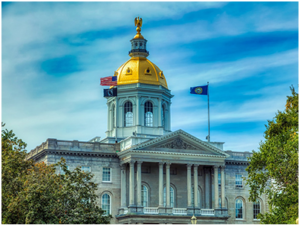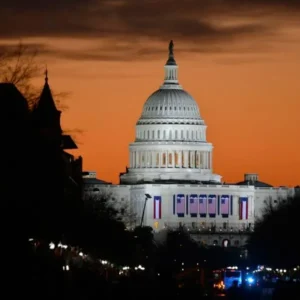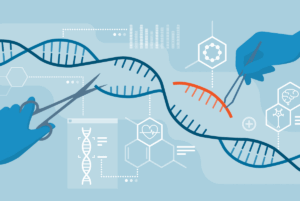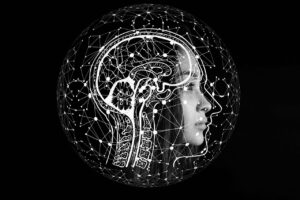Astronomy stands as a pivotal part of scientific inquiry, serving as the very foundation upon which the understanding of the cosmos and where humankind’s place within it rests. The profound development of astronomy illuminates the mysteries of the universe and enriches comprehension of human existence through the ages (Valls-Gabaud and Boksenberg pg.4). By delving into the interplay between astronomy and society, individuals can develop a deeper connection with their heritage, tracing the celestial threads woven into the fabric of culture and history. In doing so, they gain insight into the extreme influence of space on the canvas of their lives. But as the problem of light pollution reaches unprecedented levels, the future of astronomy and the observations of celestial phenomena from Earth’s surface faces an extreme threat. The dangerous effects of light pollution have already rendered iconic urban landscapes, such as New York City. As light pollution intensifies, communities and scientists in their pursuit of discoveries in space worldwide are increasingly robbed of the opportunity to spectate the mesmerizing night sky.
The debate surrounding the significance of astronomy within the scientific community is extensive. However, when delving into its profound impact on culture, community, and human understanding of humanity’s origins, it becomes clear that astronomy plays a pivotal role in science. Without astronomy, humans lack a crucial understanding of the fundamental workings of the universe, such as the principles of light and gravity, essential for grasping the intricacies of physics itself. Critics often speculate about the potential misuse of new astronomical discoveries, drawing parallels to the ethical dilemmas posed by atomic warfare. Yet, unlike astronomy, atomic warfare gave a different meaning to the social responsibility of scientists than the practical use of astronomy (Valls-Gabaud and Boksenberg pg. 5). Astronomy offers valuable tools for unraveling complex scientific concepts, like astrophysics, which works to apply the principles of physics to comprehend the vast evolution of the universe- from its primordial beginnings to its present-day complexity (Valls- Gavvuad and Boksenberg pg.5)
Astronomy is not merely a scientific study, but it is also a lens through which humans view history. As Valls-Gavvuad and Boksenberg note, astronomy has been “observed by different cultures while leading to different interpretations of space and time” (pg.5). This dual role in science and human culture shows the profound significance of the cosmos. Despite the vast differences in place, people, and personalities, among communities, they all share the view of the stars that the night sky provides. The night sky serves as a timeline connecting a person to their ancestors who looked up and gazed at the same beautiful sight. The curiosity of humans billions of years ago laid the groundwork for the evolution of astronomy.
Initially considered a “revolutionary idea” associated with “power” and “natural phenomena” (Valls-Gavvuad and Boksenber pg.4), astronomy has since evolved into a sophisticated science. It applies the scientific method to celestial objects that cannot be directly experimented with, thus expanding humans’ understanding of the universe (Valls-Gavvuad and Boksenber pg.4). Through astronomy, mankind not only makes renowned discoveries but fosters a sense of unity and shared heritage. Astronomy stands as one of the greatest contributions to modern knowledge, bridging the past and the future while uniting humankind in the pursuit of understanding the mysteries of the universe.
Delving into the profound importance of astronomy reveals the immense value it provides to humanity. However, the marvels of the night sky are increasingly at risk due to the growing global issue of light pollution. This problem has escalated as humankind has evolved, with the proliferation of brightly lit skyscrapers and heavy car traffic contributing to the diminishing visibility of celestial wonders. Many children growing up in cities are robbed of the experience of witnessing the bright night sky and instead are given the sight of artificial skyscraper lights. If humankind continues to ignore the severity of this issue, they could risk losing the stars forever. This would not only rob citizens of the experience of witnessing all the wonders the night sky provides, but it would cause all of science to suffer as astronomy ceases to exist. Because astronomy works heavily to make sense of what humans cannot physically see up close it is incredibly important that scientists have a view of the night sky to aid them in research. Without the view of the stars mankind and science will ultimately suffer.
There are various ways in which people can limit the effects of light pollution, though reducing it requires a multifaceted approach. If a person is planning a road trip, it would be recommended to minimize nighttime driving in high-traffic areas to reduce light emissions which may make the night sky less visible to the naked eye. At home, a person should always turn off unnecessary lights before bed, and consider using motion sensor lights and shielded fixtures to direct light only where and when needed. A person can also invest in lower-intensity light bulbs to decrease light output and save energy. If a person lives in a residential area, establishing a curfew for outdoor lighting and using smart lighting systems to automate dimming or turning off lights at specific times can decrease light pollution as well as save energy. Light pollution is not a widely talked about issue therefore it is incredibly important for people to engage with their community, raise awareness, and support local policies aimed at mitigating light pollution. Collectively, these measures can significantly preserve the night sky and benefit both community engagement in space and astronomy. By implementing effective measures to reduce light pollution, we can safeguard the future of astronomy, protect natural ecosystems, and enhance the quality of life in our communities.
Work Cited
https://www.cambridge.org/core/services/aop-cambridge-core/content/view/5EEC459E7B65FF1397B8AB0252B8F236/S1743921311002079a.pdf/the-role-of-astronomy-in-society-and-culture.pdf. Accessed 19 May 2024.



















